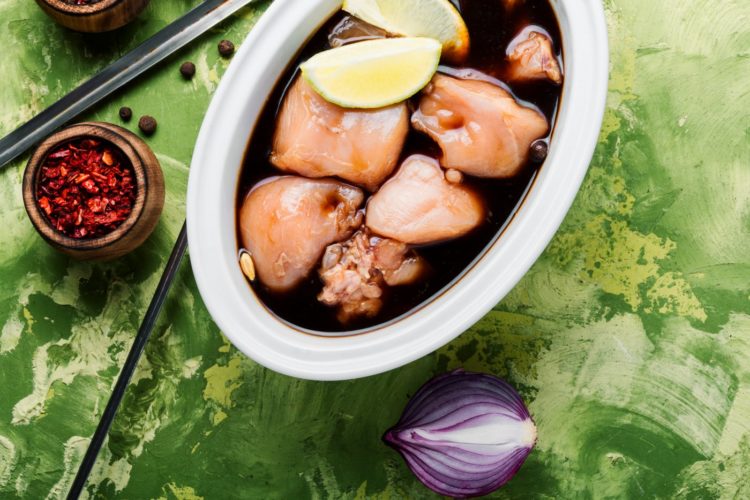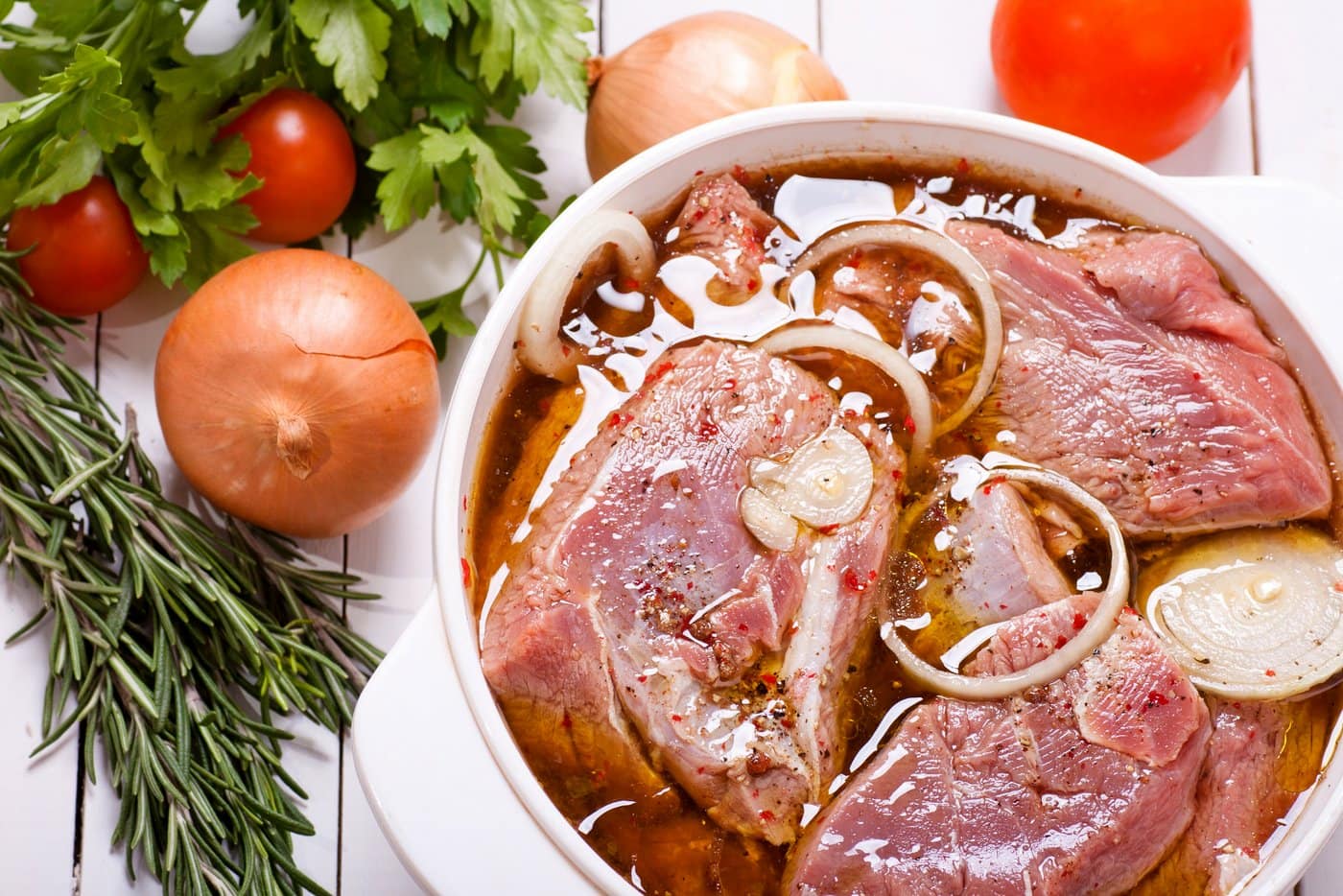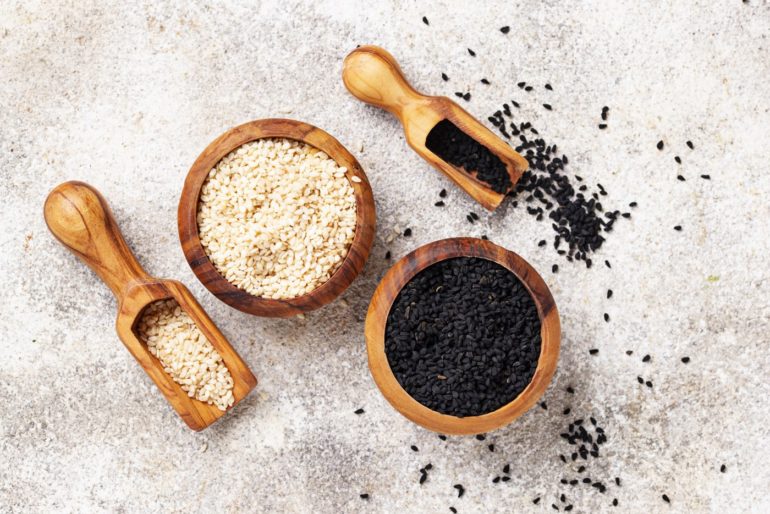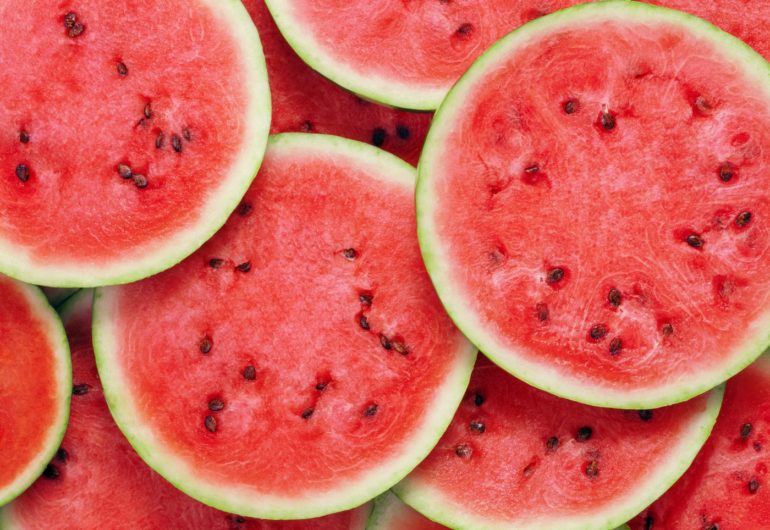What’s the best way to marinate meat?
What’s a marinade, and what is it for?
Marinades are seasoned solutions used to soak and add flavor to meats — and can also help tenderize cuts of beef, pork, chicken and more.
If your goal is to tenderize (rather than just season), your marinade needs to have an acidic ingredient, such as lemon or lime juice, tomato juice or salsa, wine, sherry, vinegar or yogurt, or a natural tenderizing enzyme found in fresh papaya, ginger, pineapple and figs.
“Soaking a piece of meat in a marinade will only penetrate so far into the surface of the meat, millimeters at best,” says food scientist Jessica Gavin. “It’s a technique that works well with thinner, flat cuts or pieces of meat that have been cut into cubes or slices.”
Another reason to go easy on the marination: You want to be able to taste the meat, and not just the added flavoring.
Marination how-to: The best way to marinate meat
Marinate meats in a covered bowl in the refrigerator. Don’t marinate at room temperature, because bacteria will grow rapidly. While it’s true that the acid in marinade can slow or stop the growth of bacteria, it won’t kill the some of the worst.
By the same token, don’t reuse your marinade, or use it as an on-the-side seasoning dip, because the used marinade will have raw meat juices that could cause food poisoning. (If it hasn’t been sitting out for very long, you can boil it, and then use it au jus style.)
A better way to use marinade on the finished dish is to mix your seasonings first, then reserve a half cup or so before adding the remainder to your meat.
Some meats, such as thick cuts of pork and steak, can typically marinate for hours, while other less dense cuts of meat — such as chicken breast and most fish — only need to stay in a marinade for a short time.
The Texas Beef Council suggests that after draining marinade from beef, pat all sides dry with paper towels to prevent steaming and encourage browning. (This is also a good time to rub in any additional seasonings that you want to add.)
The National Cattlemen’s Beef Association offers the following tips:
- Figure about 1/4 to 1/2 cup of marinade for each 1 to 2 pounds of meat. (Make a little extra if you want to serve some marinade on the side with the cooked meat.)
- Always marinate in the refrigerator, never at room temperature.
- Use a nonreactive container for marinating, such as a glass dish or heavy-duty plastic food-safe bag, rather than a metal pan.
- Turn the meat occasionally so all sides are exposed to the marinade.
- If a marinade is to be used later for basting or as a sauce, make a larger batch and reserve a portion before adding the meat. Never reuse marinade that has been in contact with uncooked meat.

Meat by meat marinade tips
Beef marinating
If you already have a tender cut of beef, only 15 minutes to 2 hours of marinating time is required to add flavor, according to the Texas Beef Council. But, they add, if tenderizing is also a goal, your meat should soak in the liquid for at least 6 hours — but no more than 24 hours.
And while marinade can be fabulous, there really is too much of a good thing. Don’t overdo it — any longer than that, and the muscle fibers break down too much and the texture becomes mushy.
Pork marinating
Typically, you’ll want to marinate pork for at least 30 minutes and as long as two days, suggests the National Pork Board. “If the recipe is citrus heavy, err on the shorter end of the spectrum to prevent the marinade from breaking down the meat and creating mushy results.”
Chicken & turkey marinating
Whole poultry or poultry parts may be marinated by completely immersing the poultry in the marinade, says the United States Department of Agriculture Food Safety and Inspection Service (FSIS). “To help infuse the marinade into the poultry, you may use a fork to make random holes in the meat. A needle-like injector may also be used.”
The FSIS says that poultry can be refrigerated for up to two days in a marinade, and food-grade plastic, stainless steel, or glass containers may also be used to marinate food.
Duck marinating
Whole ducks should be marinated for 3 to 12 hours, according to Ducks Unlimited, however, duck parts need only 3 to 4 hours of marinating.
Teriyaki Marinade recipe
Here is a simple Teriyaki marinade recipe, that works on a variety of meats.
1/2 cup soy sauce
1/2 cup water (or try orange juice or pineapple juice)
2 tablespoons wine vinegar
1 cloves of garlic, crushed (or 1 teaspoon garlic powder)
1 teaspoon dry mustard
1 teaspoon ginger, freshly-crushed (or 1/2 teaspoon powdered)
2 tablespoons brown sugar
Simply combine all ingredients for a tasty marinade that’s perfect for beef or chicken.
One final note: marinade is the liquid, and marinate is the process.







